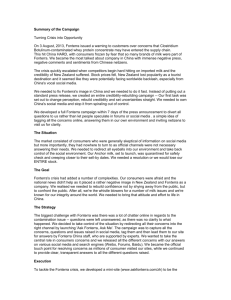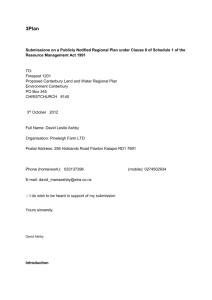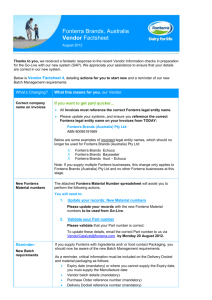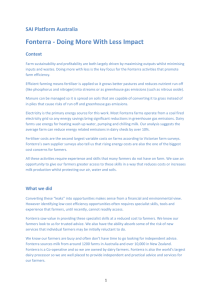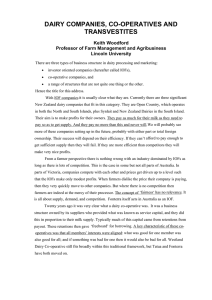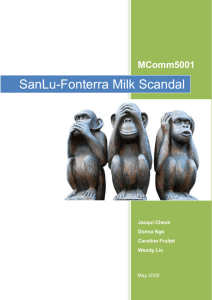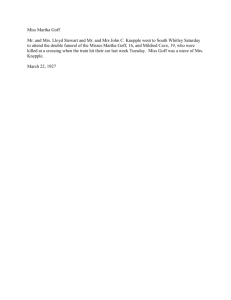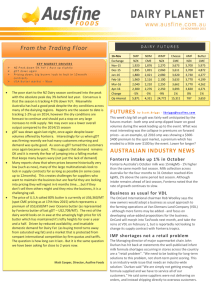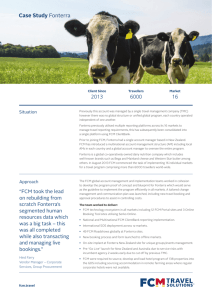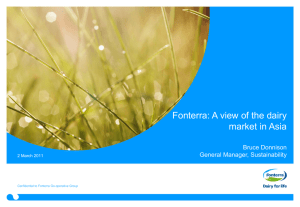Market access rights irk EU chief
advertisement
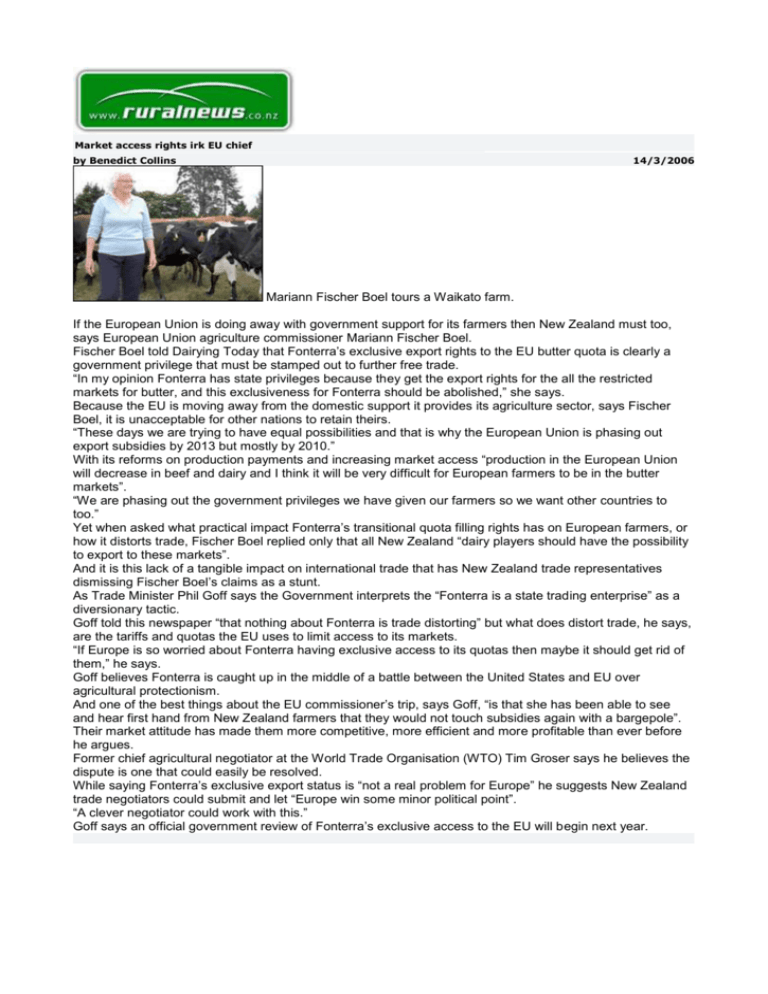
Market access rights irk EU chief by Benedict Collins 14/3/2006 Mariann Fischer Boel tours a Waikato farm. If the European Union is doing away with government support for its farmers then New Zealand must too, says European Union agriculture commissioner Mariann Fischer Boel. Fischer Boel told Dairying Today that Fonterra’s exclusive export rights to the EU butter quota is clearly a government privilege that must be stamped out to further free trade. “In my opinion Fonterra has state privileges because they get the export rights for the all the restricted markets for butter, and this exclusiveness for Fonterra should be abolished,” she says. Because the EU is moving away from the domestic support it provides its agriculture sector, says Fischer Boel, it is unacceptable for other nations to retain theirs. “These days we are trying to have equal possibilities and that is why the European Union is phasing out export subsidies by 2013 but mostly by 2010.” With its reforms on production payments and increasing market access “production in the European Union will decrease in beef and dairy and I think it will be very difficult for European farmers to be in the butter markets”. “We are phasing out the government privileges we have given our farmers so we want other countries to too.” Yet when asked what practical impact Fonterra’s transitional quota filling rights has on European farmers, or how it distorts trade, Fischer Boel replied only that all New Zealand “dairy players should have the possibility to export to these markets”. And it is this lack of a tangible impact on international trade that has New Zealand trade representatives dismissing Fischer Boel’s claims as a stunt. As Trade Minister Phil Goff says the Government interprets the “Fonterra is a state trading enterprise” as a diversionary tactic. Goff told this newspaper “that nothing about Fonterra is trade distorting” but what does distort trade, he says, are the tariffs and quotas the EU uses to limit access to its markets. “If Europe is so worried about Fonterra having exclusive access to its quotas then maybe it should get rid of them,” he says. Goff believes Fonterra is caught up in the middle of a battle between the United States and EU over agricultural protectionism. And one of the best things about the EU commissioner’s trip, says Goff, “is that she has been able to see and hear first hand from New Zealand farmers that they would not touch subsidies again with a bargepole”. Their market attitude has made them more competitive, more efficient and more profitable than ever before he argues. Former chief agricultural negotiator at the World Trade Organisation (WTO) Tim Groser says he believes the dispute is one that could easily be resolved. While saying Fonterra’s exclusive export status is “not a real problem for Europe” he suggests New Zealand trade negotiators could submit and let “Europe win some minor political point”. “A clever negotiator could work with this.” Goff says an official government review of Fonterra’s exclusive access to the EU will begin next year. Market access rights irk EU chief 1. Describe the type of support the Mariann Fischer Boel wants removed from New Zealand. 2. What is Fonterra? 3. What are the products likely to decrease in production in the EU? Explain why. 4. What are quotas? 5. Explain what “a state trading enterprise” is. 6. How does the diary export industry differ to that of pip fruit?

